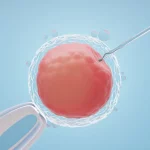
Egg donation is a crucial process that helps many individuals and couples fulfill their dreams of having a family. Understanding the eligibility criteria and qualifications is essential for women considering becoming egg donors. The process involves donating eggs to help those struggling with infertility or to individuals who cannot use their own eggs due to medical reasons. An egg donation agency like EggDonors4All is dedicated to helping donors navigate this process and ensuring they meet the requirements.
Egg Donation Requirements
1. Age Requirements
One of the primary factors in determining egg donation eligibility is age. Egg donors are typically between the ages of 19 and 30. If you’re wondering what are the requirements for egg donation, age is a key consideration in the process. This age range is ideal because it is the period when women tend to have the highest quality eggs.
Women over 30 may still qualify, but egg quality begins to decline after this age, which can affect the success rates of fertility treatments. Egg donation is not recommended for women older than 35, as the quality of eggs generally decreases significantly. EggDonors4All provides comprehensive guidance to potential donors on age-related eligibility and the requirements for egg donation.
2. Health Considerations
Donors must be in good physical health. This includes maintaining a healthy body weight, having no chronic health conditions (such as diabetes, heart disease, or autoimmune disorders), and not being on medications that could interfere with fertility. A thorough medical evaluation is conducted before acceptance into an egg donation program.
This typically includes screenings for sexually transmitted infections (STIs), genetic conditions, and a general health assessment. A good medical history is essential to ensure no inheritable diseases are passed on to the recipient. Meeting the requirements to become an egg donor is key to ensuring the best outcome for both the donor and recipient.
3. Psychological and Emotional Health
Egg donation is a physically and emotionally demanding process. Therefore, donors must also meet psychological criteria. An essential part of the process is a psychological evaluation to assess the donor’s emotional stability and understanding of the commitment involved.
Egg donors should be able to handle the emotional and psychological impact of donation, including the possibility of having minimal or no future contact with the resulting child. Our egg donation agency “EggDonors4All” ensures that all donors undergo this crucial evaluation to be mentally prepared for the egg donation process.
4. Family History
Another key factor in determining eligibility is a family history of genetic diseases. Women applying to become egg donors must provide detailed medical history information, including the genetic health of both their parents and siblings. This ensures that potential hereditary issues are identified before the donation begins. The criteria for egg donation include having no family history of genetic disorders that could be passed on.
5. Lifestyle Factors
Donors must also be non-smokers with no history of drug use and should have moderate to low alcohol consumption. These factors are important because substances like nicotine, drugs, and excessive alcohol can negatively affect egg quality and may compromise the health of the recipient or future child. A commitment to a healthy lifestyle is essential to ensure the best outcomes for all parties involved. These are common requirements for egg donation that ensure the success of the egg donation cycle.
6. Reproductive Health
Donors must have a regular menstrual cycle and demonstrate normal reproductive health. Irregular cycles or conditions like polycystic ovary syndrome (PCOS) or endometriosis may reduce the likelihood of successful egg retrieval and fertility. A medical screening will often include an ultrasound of the ovaries and hormone tests to ensure the donor’s fertility is optimal for donation.
If you’re curious about what are the qualifications to be an egg donor, these health factors are essential to meet. Then, meeting the egg donor qualifications is vital for a smooth and successful egg donation cycle.
7. No Previous Egg Donations
Egg donors should not have previously donated eggs more than a few times. There are regulations in place that limit the number of donations a woman can make in her lifetime, as this helps prevent the risk of accidental incest between half-siblings. This restriction varies by country and region, but it is generally advised that no more than 6-10 donations are made in a lifetime. These are part of the requirements to become an egg donor.
8. Commitment and Availability
Donating eggs requires time and commitment. The donor must be available for medical appointments, including ultrasounds, blood tests, and the egg retrieval procedure. The entire egg donation cycle may take several weeks, and donors must be flexible and reliable.
In addition, donors must be prepared to follow a hormone regimen that may include injections to stimulate egg production. Egg donor clinics provide the necessary support and monitoring during the egg donation process.
9. Legal and Ethical Considerations
Understanding the legal implications of egg donation is essential. Donors should know their rights and responsibilities, including any legal obligations surrounding anonymity, compensation, and potential future contact with the recipient. Donor agreements should be thoroughly reviewed, often with legal advice, to ensure all parties are clear on expectations. An egg donation agency like EggDonors4All ensures that all donors understand the legal and ethical considerations involved.
10. Compensation and Benefits
While financial compensation is not the primary motivation for egg donation, it is an essential part of the process. Donors typically receive compensation for their time, effort, and any inconvenience related to the donation process. Compensation varies based on location, clinic, and donor profile, but it can be significant. Additional benefits include reimbursement for travel expenses, medical costs, and sometimes even counseling services. Egg donor compensation is an important aspect of the process, and EggDonors4All ensures that donors are well-compensated for their time and efforts.
Frequently Asked Questions:-
Q: What is the age requirement for egg donation?
Ans: Egg donors are typically between the ages of 19 and 30, as this is when egg quality is highest. This is one of the key requirements for egg donation that an egg donation agency uses to determine eligibility.
Q: What health conditions can affect my eligibility to donate eggs?
Ans: To qualify, donors must be healthy, with no chronic conditions like diabetes, heart disease, or autoimmune disorders. Egg donor qualifications also include having no medical conditions that could interfere with fertility, ensuring a successful egg donation cycle.
Q: Do I need to have a regular menstrual cycle to donate eggs?
Ans: Yes, donors should have a regular menstrual cycle and demonstrate normal reproductive health for the best chances of successful egg retrieval. This is one of the criteria for egg donation that egg donor clinics look for in potential candidates.
Q: How many times can I donate eggs?
Ans: Egg donors are typically allowed to donate up to 6-10 times in their lifetime to prevent risks like accidental incest between half-siblings. These limits are part of the requirements to become an egg donor set by an egg donation agency.
Q: What compensation do egg donors receive?
Ans: Egg donors are compensated for their time and effort, with additional reimbursements for travel, medical costs, and sometimes counseling. Although egg donor compensation varies by location and clinic, donors are fairly compensated for their involvement in the egg donation process.
Conclusion
Becoming an egg donor is a life-changing decision that requires meeting specific eligibility requirements for egg donation and understanding the process’s physical, emotional, and legal aspects. Women who meet the age, health, psychological, and lifestyle requirements to become an egg donors can make a meaningful difference in the lives of individuals or couples looking to build their families.
If you are considering egg donation, it is important to research the requirements to become an egg donor, undergo thorough screenings, and ensure that you are ready for the responsibility involved in this incredible act of generosity. EggDonors4All provides all the support and resources needed for a smooth and successful egg donation process.

Dr. Veera Saghar
As an Egg Donor Coordinator, she plays a critical role in our company. Her background as a medical graduate from ISRA UNIVERSITY in Pakistan provides us with a solid foundation in the medical sciences. She has seven years of clinical experience practicing in the USA. This has given her firsthand experience when collaborating with patients and their families.
She is responsible for managing the process of egg donation from start to finish. We identify and screen potential egg donors.







